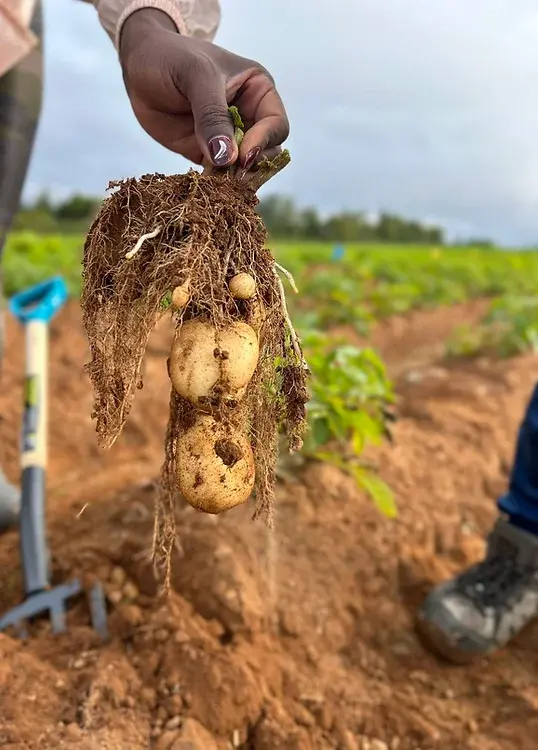Our Program
Innovation Supported By Research. Through the Agricultural Climate Solutions, the NL Living Lab focuses on co-developing innovative climate solutions to sequester soil carbon sequestration and mitigate greenhouse gas emissions.

Working Together
Led by the Newfoundland and Labrador Federation of Agriculture (NLFA), NL Living Lab is carried out in collaboration with farmers across the province and in partnership with Memorial University (Grenfell), Government of Newfoundland and Labrador (Department of Fisheries, Forestry and Agriculture) and Agriculture and Agri-Food Canada.
Farmer Centric
Focused on farmers needs, the NL Living Lab involves farmers at every step. Farmers contribute knowledge, experience, testing proposed innovations that can strengthen their bottom line while helping the environment.
Research and Innovation
This innovation cycle begins with identifying the needs of farmers. Supported by research, partners co-develop and test solutions in real world condition to facilitate on-farm adoption of practices and technologies to mitigate climate change.

Agricultural Climate Solutions (ACS)
Agricultural Climate Solutions – Living Labs, is a $185 million, 10-year program that will establish a strong, Canada-wide network of living labs. Through these living labs, regional leaders will bring together farmers, scientists, and other sector partners to co-develop, test and monitor beneficial management practices on working farms to reduce Canada's environmental footprint and enhance climate resiliency.
Beneficial Management
Practices
NL Living Lab will accelerate the development and adoption of innovative climate solutions by addressing specific priorities identified by farmers.
Cover Crops (BMP)
The goal is to establish cover crops in annual forage and vegetable production systems to assess their potential for enhancing soil carbon sequestration, soil health, crop yield and quality, nitrogen use efficiency and greenhouse gas mitigation. It is expected that the cover crops will also capture any excess nitrogen that is available before potatoes are ready to use, reducing the amount of nitrogen lost through leaching or greenhouse gas emissions and potentially improving nitrogen use efficiency forage systems, winter-hardy cover crops will be planted following forage harvest, to cover the soil and capture any excess nutrients during the fallow periods between harvest and the next spring.
Nitrogen Use Efficiency (BMP)
A key aspect of the project is to identify cover crop niches that have potential to improve productivity and, nitrogen use efficiency in forage and vegetable systems. The assessments of soil health and economic viability of such proposed. The use of cover crops that are nitrogen fixers such as clovers and legumes which contribute to the nitrogen net benefit to a producer and will assist with reducing a farmers need to rely on synthetic fertilizers.
Biochar/Compost (BMP)
Using biochar carbon, to capture and stabilize carbon, from locally sourced organic materials and test the efficacy of these materials in sandy soils under vegetable production systems in Labrador. Production of biochar would not only reduce greenhouse gas emissions associated with organic wastes but also reduce CO from the atmosphere by capturing it from point sources and sequestering in soils. The work will start at pilot scale to develop biochar using locally available waste materials in Labrador. The biochar will then be tested on-farm in vegetable production systems in Labrador.
Other Environmental Benefits
There are many benefits for farmers to adopt and integrate innovative agri-environmental practices into their production systems, such as: water retention, riparian zone improvements, pollination strips, rotational grazing, biodiversity, increased resources and resiliency of ecosystems to adapt to climate change.
Meet our Core Farmers


















